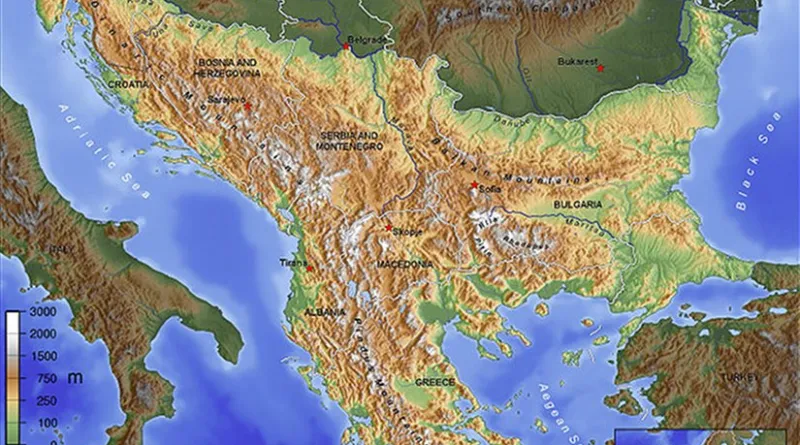North Macedonia’s Democratic Resilience Deserves Proper Recognition

Western discussion of the country and the Western Balkans too often focuses on stereotypes about ethnic violence and intolerance – obscuring the real achievements.

Western discussion of the country and the Western Balkans too often focuses on stereotypes about ethnic violence and intolerance – obscuring the real achievements.

Albania’s former President Ilir Meta’s return to frontline politics did not come as a surprise to anyone, but some doubt that his newly rebranded party will be able to compete successfully with well-entrenched Prime Minister Edi Rama.

he rallies against acceptance of the French proposal for lifting Bulgaria’s blockade on North Macedonia’s EU talks draw on discontent felt across the political spectrum.

A new book tells the rarely-heard stories of Kosovo Albanians who were detained in grim conditions on the Croatian island of Goli Otok (Barren Island), a prison camp for political dissidents in the former Yugoslavia.
“When I arrived there, it was a very cold day and I was taken immediately to solitary confinement in a dark and frozen cell,” said Fadil Bajraktari, recalling the day in 1984 when he was sent to a detention camp on an isolated island off the coast of Croatia.

Hundreds of women and children who escaped war in Ukraine have found a welcoming place to stay on the coast of a country they knew little about before the war.
All that remains of Olha Yatsenko’s home in Irpin, a town north of Kyiv with a pre-war population of 60,000 inhabitants, are some photos of her brown-coloured furniture and white cups.

Returnees to Kosovo from former Islamic State territory in Syria and Iraq face slim prospects of finding work and only limited support from the state.
Within days of returning to her native Kosovo, N was racked by fear of the challenges that awaited her and her son – fear of financial uncertainty and of how her community would greet her.

Turkey and Turkmenistan are working on a gas deal that will likely extend to Europe in a bid to reduce Western dependency on Russian gas.
With fears mounting that Russia may cut off gas supplies to Europe, Turkey is working on plans to bring in gas from Turkmenistan and has started transiting gas to neighboring Bulgaria, which has already had its supplies of Russian gas cut.

Ibrahim El Salih lost his job and his daughter and grew increasing belligerent in his social media posts. Then he was arrested for “encouraging terrorist acts”.
Ibrahim El Salih used to work as an inspector for the Protection of Territory at his local municipality in Kukes, a small town in northern Albania. A father of two, he was known as a practicing Muslim and a supporter of the opposition Democratic Party.

Frontex and the European Commission sidelined their own data protection watchdogs in pursuing a much-criticised expansion of “intrusive” data collection from migrants and refugees to feed into Europol’s vast criminal databases, BIRN can reveal.

The European Union’s treats Western Balkans states as a wicked stepmother. While this has not significantly changed even after the Russian invasion on Ukraine, it did triggered a fundamental debate on whether the EU wants at all to admit the remaining six Western Balkan countries (Serbia, North Macedonia, Albania, Montenegro, Bosnia and Herzegovina and Kosovo) to full-fledged membership. If the EU would have an intent to admit the listed countries to its membership, the question to be asked is how it could do that. Namely, 19 years have passed since the adoption of the Thessaloniki agenda for the Western Balkans, which envisaged membership of the Western Balkan countries in the EU. Other than the promises about European perspective of the respective countries, nothing concrete has happened with respect to their membership in the EU.